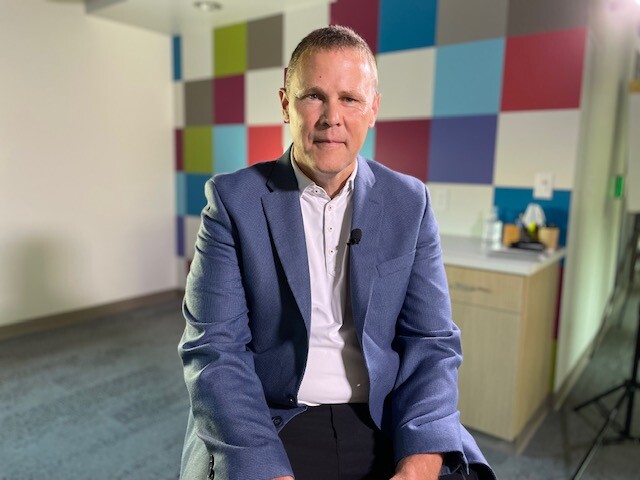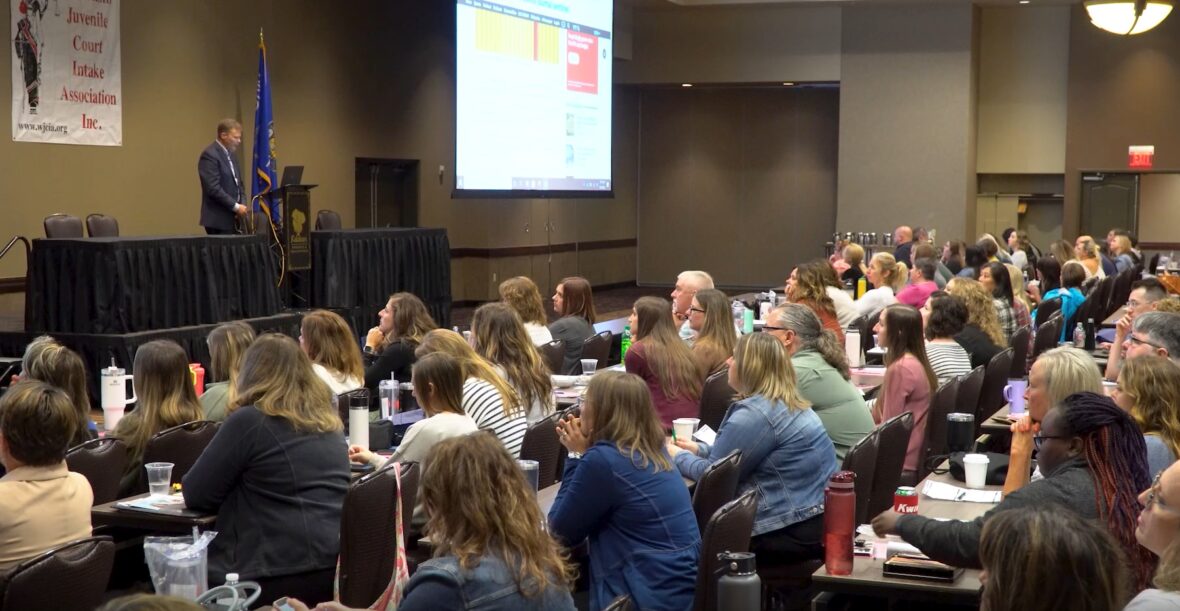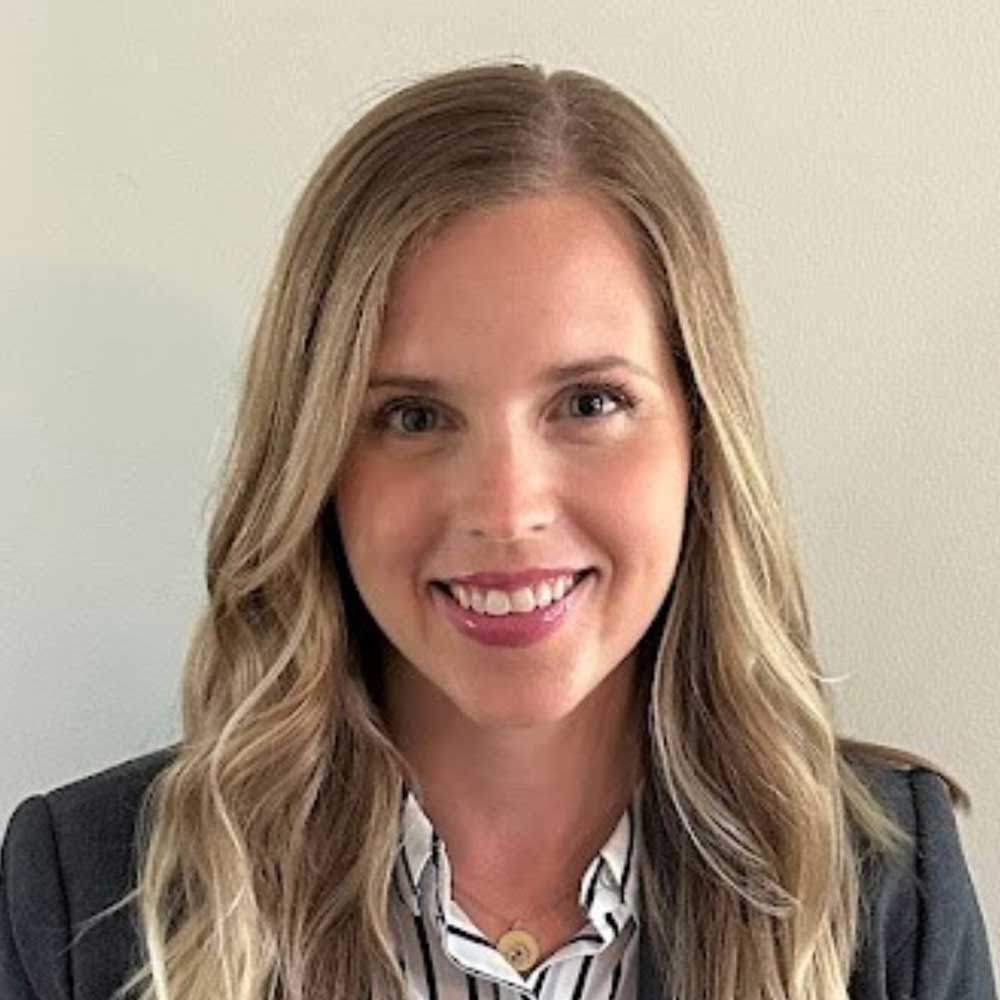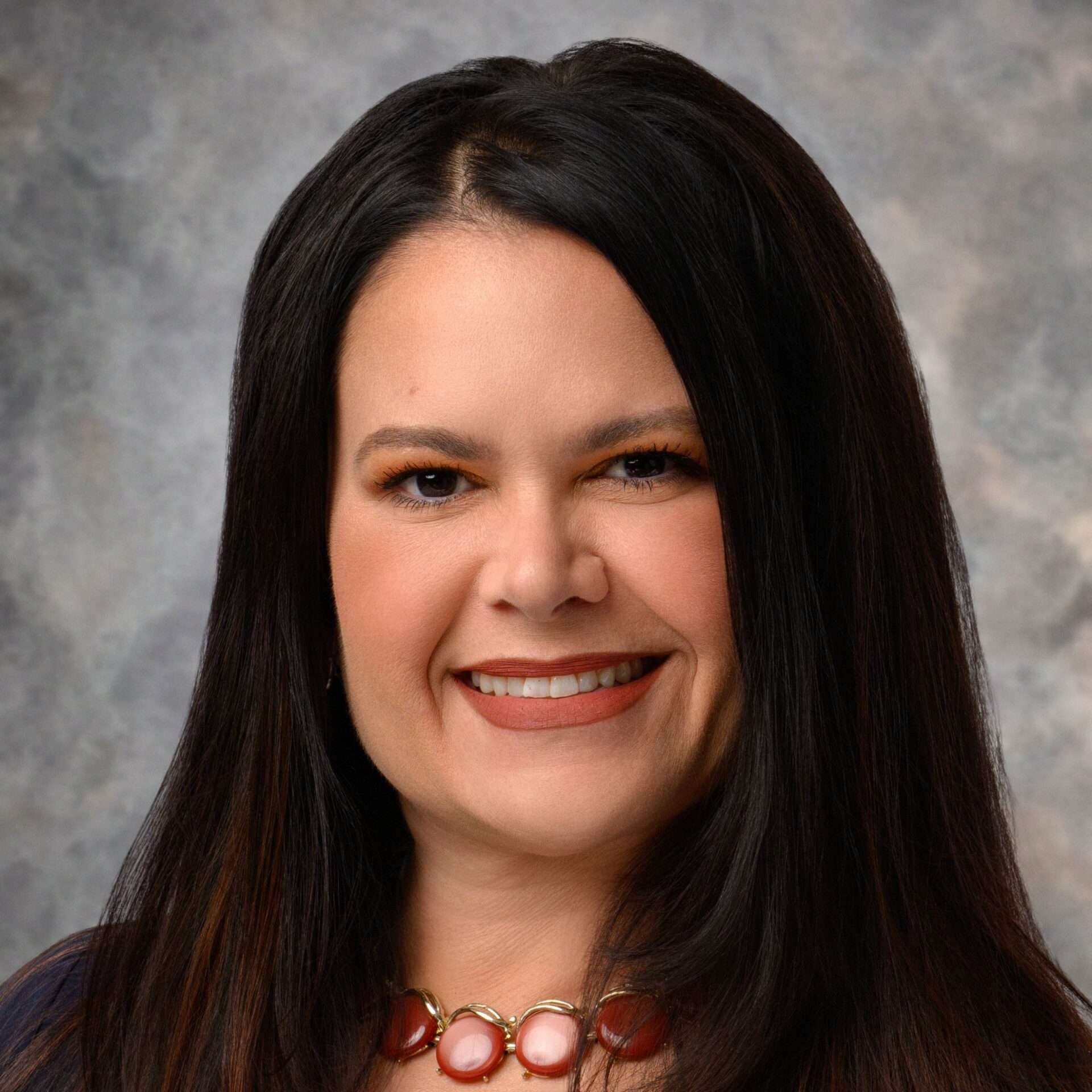Tim Grove, Creator of Wellpoint Care’s Trauma Informed Care Curriculum, to Retire this Summer

“We realized that in order to truly create healing, it would take a village.”
Those are the words of Tim Grove, Wellpoint Care Network’s Senior Director of Trauma Informed Strategy and Practice.
That realization came in 2007, when Grove and other Wellpoint Care (at the time Saint Aemilian Lakeside) employees saw Dr. Bruce Perry in Madison, Wisconsin.
“Our entire field was struggling with the challenging behaviors kids were presenting,” said Grove. “There were multiple collaborations with state and local partners, our foster parents and staff to try and find solutions that could both reduce physical restraints and find better ways to respond.”
Once Grove heard Dr. Perry, he instantly knew the concepts and strategies being presented could have a positive impact on the organization’s mission to help children and families thrive. “He was the spark of hope that things could get better.”
Defining the Essential Ingredients
As Wellpoint Care Network began its trauma-informed journey, Grove knew he needed a conceptual home for all of the new concepts being learned.
“As we started to implement what Dr. Perry taught us, we heard about the Adverse Childhood Experiences (ACEs) work from Dr. Robert Anda and Laura Porter and worked to find where that fit into what we were trying to convey,” said Grove. “After that, we kept learning new things and we kept digging deeper with what we had already learned — applying these powerful ideas in practice.
“The idea is not ‘What is wrong with you?’ but instead, ‘What happened to you?’“
Justin Hughes, Wellpoint Care Network Placement and Licensing Supervisor
Wellpoint Care began certification in Dr. Perry’s Neurosequential Model of Therapeutics™ (NMT) and became a co-sponsor of ACE Interface in Wisconsin. We were also receiving valuable feedback in real time from our own staff members, those being taught the concepts and all of the incredible colleagues in the groups we were a part of.
Eventually, the Seven Essential Ingredients of Trauma Informed Care (7ei) were created and became an organizational commitment and framework.
“It really is the crockpot of our way of thinking about things,” added Grove. “When we find a helpful concept that enhances the recipe, we carefully add it to the mix.”
“The idea is not ‘What is wrong with you?’ but instead ‘What happened to you?’” said Justin Hughes, Wellpoint Care Network Placement and Licensing Supervisor. “I’ve been with the organization since the beginning of this work, and we have grown collectively in our knowledge of historical and individual trauma and how it plays an integral role in the lives of the families we serve. Tim has been instrumental in developing this philosophy and practice throughout our community.”
A History of Hands-on service

Though most known as the architect of Wellpoint Care’s Trauma Informed Care (TIC) curriculum, Grove started at the organization in 1999 on the program administration side of things.
“I was brought in to lead the intensive in-home program,” said Grove. “This was back when kids would transition home after their placement in our residential program but would still need some degree of in-home support.”
There was also a time where Grove was part of the leadership team for the Child and Family Well-being program, Treatment Foster Care program and many others.
“It used to be true that at one point or another I was connected in some way, shape or form to every program that we had,” added Grove. “That experience was quite helpful in implementing TIC practices across the organization for the past 17 years.”
Now, after 26 years, Grove is set to retire from Wellpoint Care Network.
Creating a More Trauma-informed world
“What I’ve seen prove to be true over the years is that every interaction has the opportunity to add something positive to a person’s experience,” said Grove. “It doesn’t have to be a long interaction; it could be just 20 seconds. But the more people who understand that and can show that compassion, that’s a huge deal.”
In an effort to create a more trauma-informed world, Grove has worked with and trained a diverse group of professionals including judges, police officers, juvenile justice and child welfare staff, hospitals and healthcare staff, child development staff, veteran groups, college/university staff and professors, Boys and Girls Clubs, religious groups, correctional staff, employers/employment staff and many others.

“There are such powerful stories of collaboration across all of those groups,” said Grove “When I think about all of that work and impact, my heart smiles.”
One example of those collaborations comes from Wellpoint Care’s work with the justice system.
“Trauma Informed Care has made a profound impact on the justice system in Milwaukee County,” said Mary Triggiano, Former Chief Judge for Milwaukee Circuit Court. “It has changed how we see the people we serve — not just as case numbers or offenses, but as human beings shaped by their life experiences. Because of this approach, many of us now ask, ‘What happened to you?’ instead of ‘What’s wrong with you?’ — and that shift has created space for healing, dignity and more just outcomes.”
“Tim Grove has been at the heart of that transformation,” Triggiano added. “He has a remarkable way of making science understandable, and humanity central. Tim’s wisdom, humility and clarity have changed lives — mine included. I’m forever grateful for his partnership, friendship and the legacy he leaves in our justice system and our hearts.”
Raising Awareness of Trauma’s Impact
Another example of a collaborative project involved Wellpoint Care staff collaborating with Dr. Perry, Dr. Anda, community philanthropists and Dr. Dimitri Topitzes from UW-Milwaukee. This group helped design and guide a three-year research study on the effectiveness of TIC in child welfare, which was published by the Journal of Child Custody in 2019.
“We set out to answer a critical question: if we taught ongoing case management staff to be a little more trauma-sensitive or trauma-informed in their concrete interactions, would it make a difference?” explained Grove. “The answer, put simply, was emphatically yes. The study showed that placement stability was positively influenced, permanence was positively influenced and staff satisfaction rose.”
One of Grove’s favorite examples of healing in action involves the stories featured in a 2018 segment of 60 Minutes with special correspondent Oprah Winfrey. In the segment, there are powerful examples of people who experienced trauma and how they found their pathway to healing, which came in part by being approached in a trauma-informed manner that helped them feel seen and heard.
“The stories in that 60 Minutes episode are about persistence and hope,” said Grove. “I think it just goes to show that when enough people are committed to positive change for the people in their lives, some really powerful things can happen.”
The Next Chapters of Trauma InFormed Care
As of 2025, more than 80,000 people have learned about Wellpoint Care’s Trauma Informed Care practice, and this meaningful work will continue for many years to come.
“If you look at my story with all the people that I collaborated with over the past 17 years as the early chapters in the book, I am super excited about the next chapters,” said Grove. “They’ll be written by different authors with new collaborators, but I’m excited to see how the book continues. In my mind, the best is yet to come.”
One of those authors is Julie Scott, Wellpoint Care Network’s Trauma Informed Practice and Strategy Manager. Scott is a licensed professional counselor who is certified in NMT and also provides Neurosequential Model (NM) Clinical Consultation.
“Thanks to Tim’s groundwork and leadership, TIC has become fundamental to the work we do at Wellpoint Care,” said Scott. “In his absence, we remain committed to supporting both our internal teams and external partners as they continue to grow in their understanding and implementation of the Seven Essential Ingredients.”
Scott has been part of Wellpoint Care for many years, providing consultation for schools, professionals and families working to support children in their care who have been affected by trauma through both the clinical mental health and NM lens.
“Looking ahead, we’re excited to offer more advanced and diverse training opportunities,” she added. “As always, we’ll be intentional about evolving our approach — integrating new research and emerging best practices into our trainings — so that we can continue to strengthen and refine the essential work we do.”
Scott is not the only staff member who will be contributing to the continued story of Trauma Informed Care at Wellpoint Care Network.
“Thanks to Tim’s groundwork and leadership, TIC has become fundamental to the work we do at Wellpoint Care,”
Julie Scott, Wellpoint Care Network’s Trauma Informed Practice and Strategy Manager
Suzanne Roundy-Schmidt is a Clinical Supervisor for Wellpoint Care’s School-Based Mental Health program and Outpatient Mental Health Clinic. With more than over 15 years of experience providing trauma-informed care, she has worked across all levels of the mental health system, supporting both children and adults with compassion and expertise.
Angela D’Fantis is Wellpoint Care Network’s Child and Family Well-being Program Manager with 20+ years of experience in Milwaukee’s child welfare system. She is also an instructor at the University of Wisconsin—Milwaukee’s Helen Bader School of Social Welfare, where she focuses on teaching Trauma Informed Care concepts to those about to enter the workforce.
“I take every opportunity to help coach and teach TIC to our staff and our stakeholders,” said D’Fantis. “It is our job to help grow this knowledge and understanding as employees, and as social workers.”
We thank Tim Grove for his many years of dedication to Wellpoint Care Network. He led the organization to be at the forefront of the Trauma Informed Care movement, all while helping build a team that can now take this work and continue it into the future.












